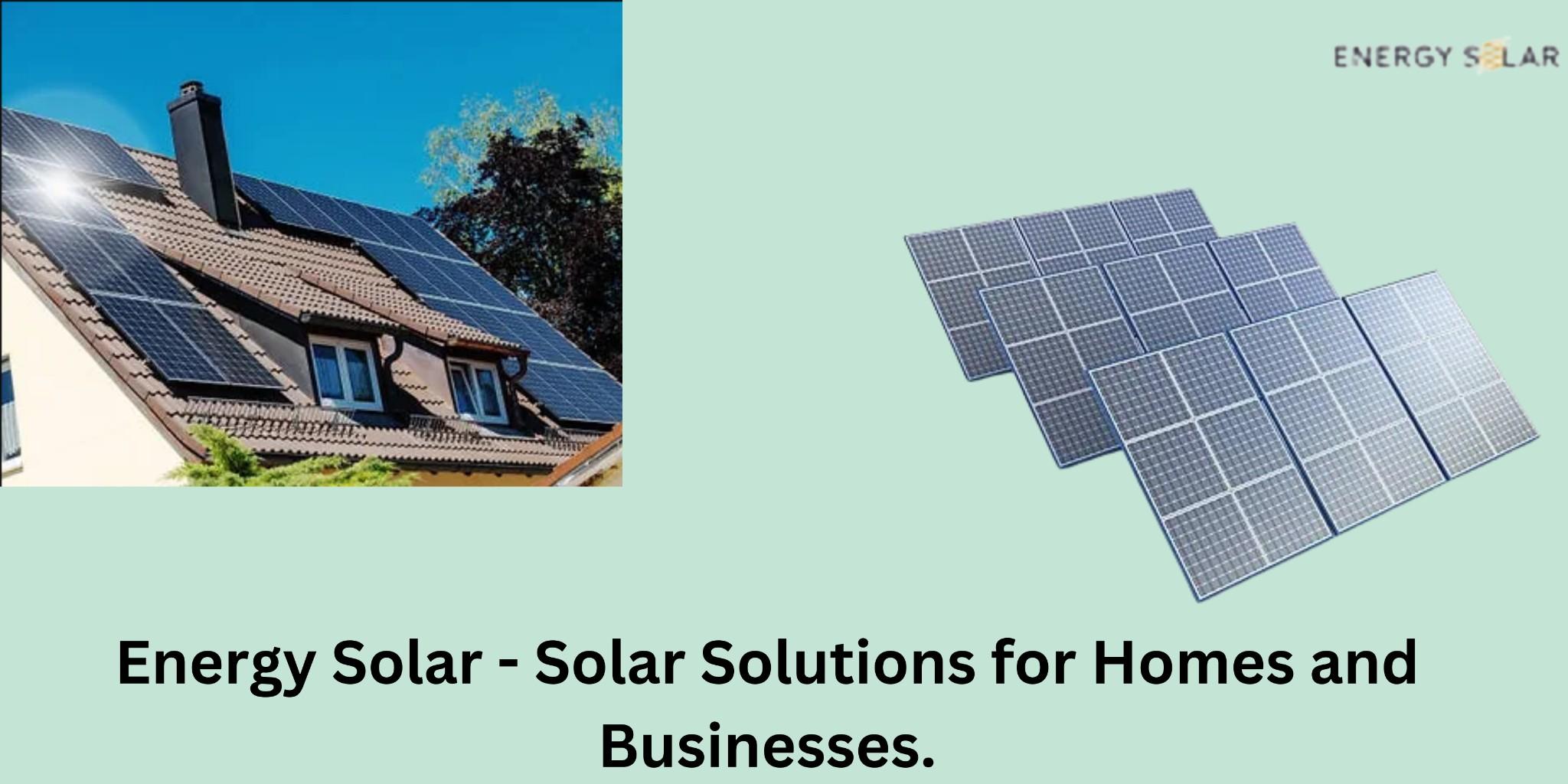Welcome to Energy Solar





➔ Solar Energy harnesses sunlight to generate electricity through solar PV systems.
➔ Its significance lies in promoting sustainable development, reducing reliance on nonrenewable energy sources.
➔ Solar PV systems contribute to environmental conservation by minimizing carbon emissions.
➔ They offer energy independence, particularly in remote areas with limited access to conventional power grids.
➔ By utilizing solar energy, communities can enhance resilience against energy crises and climate change impacts.
➔ Adoption of solar PV systems fosters economic growth through job creation and technological advancements.
➔ Overall, solar energy plays a pivotal role in achieving a cleaner, more sustainable future.

Solar power panels are devices that convert sunlight into electricity, serving as the foundation of solar energy systems.
○ Monocrystalline solar power panels utilize single-crystal silicon, offering high efficiency and space efficiency.
○ Polycrystalline solar power panels use multiple silicon crystals, balancing costeffectiveness with moderate efficiency.
○ Thin-film solar power panels consist of thin layers of photovoltaic material, providing flexibility and affordability.


● Photovoltaic Effect: When sunlight, containing photons, strikes the surface of photovoltaic cells within solar panels, it triggers the release of electrons.
● Photons from the Sun: These photons possess energy that dislodges electrons from the atoms within the photovoltaic cells.
● Generation of Electricity: The dislodged electrons create a flow of electric current, generating electricity within the solar panels.
● Conversion Process: This electricity produced by the photovoltaic cells is in the form of direct current (DC), suitable for charging batteries and powering devices.
● Solar panels act as the medium for capturing sunlight and converting it into usable electrical energy, thus facilitating the charging process for batteries and solar panels.

● Flow of Electrons: Sunlight hits solar panels, activating electrons in photovoltaic cells.
● Photovoltaic Cells: Excited electrons create an electric current.
● Generation of Direct Current (DC): DC electricity is produced by the solar panels.
● Integration with House: DC electricity flows into the house's electrical system, powering appliances.
● Excess Electricity: Any surplus electricity can be sold back to the grid, reducing bills.
● Sustainable Energy: The process emphasizes the importance of renewable energy sources like solar power.
● Benefits of Adding Solar Panels to House: Reduced reliance on traditional energy sources and cost savings.
● Inverters are crucial components in sun power solar panels, converting DC (direct current) generated by the panels into AC (alternating current) suitable for household use.
● These devices facilitate the integration of sun power solar panels with the electrical grid or battery storage systems.
● By converting the electricity, inverters ensure seamless utilization of sun power solar panels' energy.
● In essence, inverters play a vital role in maximizing the efficiency and usability of sun power solar panels, enhancing their



● Location: Ideal placement maximizes sunlight exposure.
Orientation and Angle: Proper alignment enhances energy capture.
● Maintenance: Regular cleaning and upkeep ensure optimal performance.
● Shading: Minimization of obstruction from trees or buildings is crucial.
● Temperature: High temperatures can decrease efficiency.
● Quality of Components: The use of high-quality batteries for solar panel and materials is essential for longevity.
● System Design: Efficient wiring and configuration optimize energy production.
● Inverter Performance: Properly functioning inverters ensure efficient conversion.
● Battery Storage: Integration of batteries for solar panel facilitates energy storage for later use.
➔ In conclusion, understanding the mechanisms behind solar panels reveals their pivotal role in renewableenergy.
➔ Harnessing solar energy through a solar panel system is a tangible step towards sustainability, reducing reliance on traditional fossilfuels.
➔ It offers economic benefits, including lower electricity bills and job creation. Despite challenges, technological advancements promiseabrightfutureforsolarenergy.
➔ Embracing this clean and abundant resource empowers individuals and communities to contributetoagreener,moresustainableworld.


